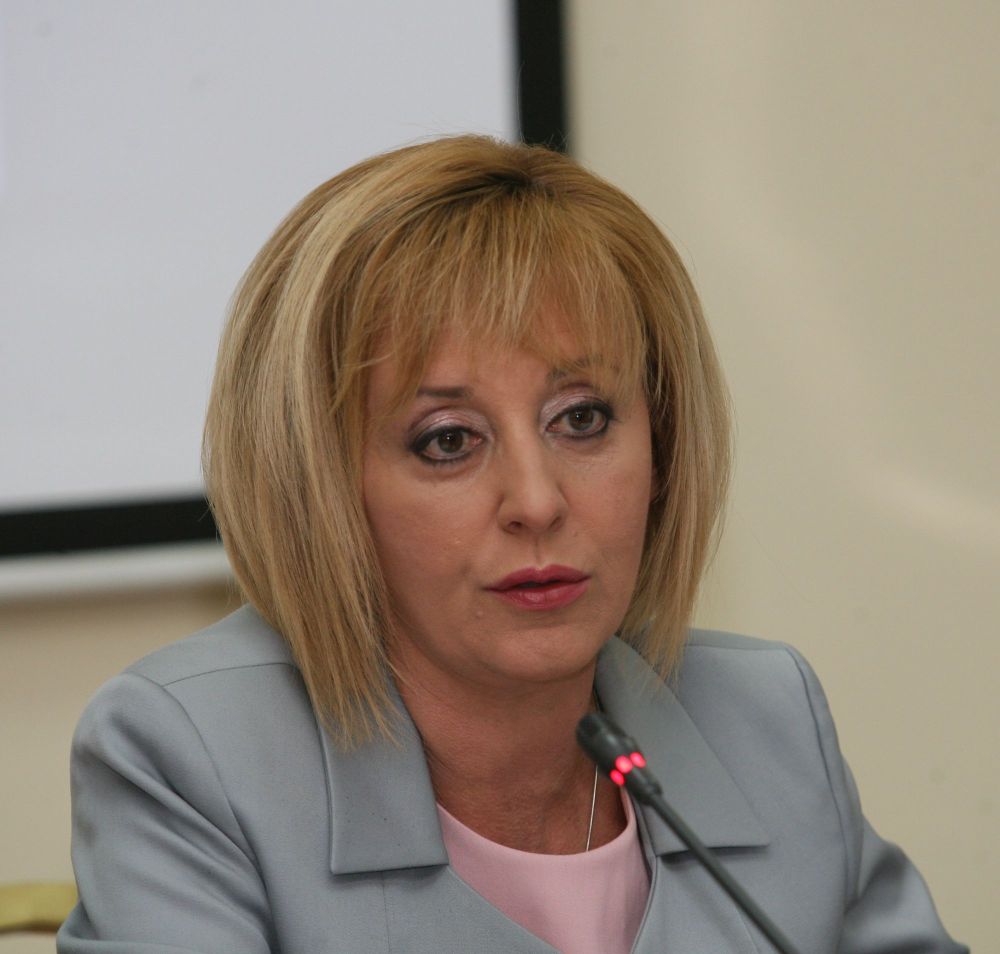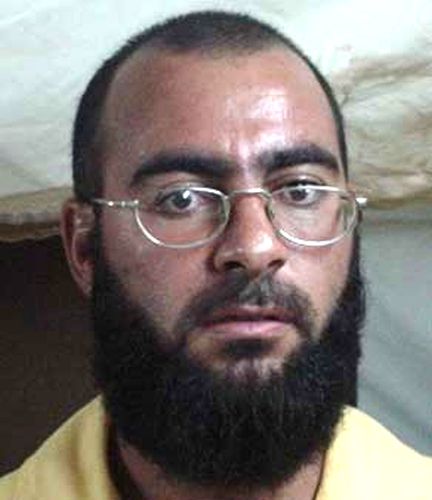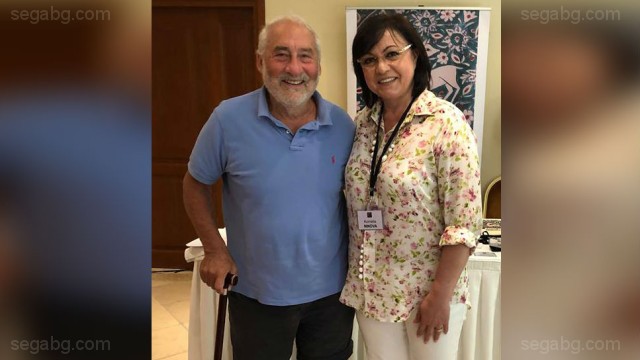|
11 Януари 2004 14:13
Ето какво пише днес New York Times по въпроса
Another Test for Qaddafi: Who Infected the Children?
By PATRICK E. TYLER
Published: January 11, 2004
BENGHAZI, Libya, — Nesma Wershefani looks at visitors warily, with piercing black eyes.
Last fall, at age 6, she went to first grade with a backpack and a brightly colored tunic, full of excitement about learning. Now she is back at home because the other children teased her about having the virus that causes AIDS, a disease she does not yet understand.
"The children and the teachers treated her very badly, and she was socially rejected," said her father, Naji Wershefani, a truck driver in Benghazi, a port city of 700, 000. Mr. Wershefani, his wife and five children live in a tiny apartment on a muddy street where potholes overflow with sewage and rainwater.
Across town, Suhaila Awad, 17, struggles to endure her isolation in the second year of high school; the other students know she carries the same virus. She hates to talk about it.
"Her best friend won't see her anymore," says her father, Muhammad Awad. "It is making me very sick, too, but in my heart."
These victims of what is known as the Benghazi epidemic, which spread H.I.V., the human immunodeficiency virus, to more than 400 children here in 1997-98, are the most visible face of one of the most difficult political problems Col. Muammar el-Qaddafi is facing as leader of Libya.
Blame has not yet been assigned, although a number of doctors and nurses, foreign and Libyan, have been charged with negligence. Some of them — only the foreigners — are in jail, facing the death penalty.
While Colonel Qaddafi's recent decision to rid his country of programs to develop nuclear and other unconventional weapons may usher in a new era between Libya and the West, a number of European nations also expect him to make a strong gesture on human rights in Benghazi.
"This is a test case for us, and we are at a crucial moment," said a European ambassador who has been working to free seven medical workers, six Bulgarians and a Palestinian, who were arrested in 1999. European governments and rights organizations assert that the epidemic was caused by gross negligence by Libya's Health Ministry.
But the Libyans said the seven took part in a conspiracy by the Central Intelligence Agency and Mossad, Israel's spy agency, to spread H.I.V. to Libya and undermine the state.
The detainees said they were tortured and sexually abused. Libyan officials at first denied the accusations, but later arrested senior army officers who conducted the interrogations and charged them with torture, which diplomats here say is routine in the prison system. (As part of their defense, the Libyan officers assert they, too, were tortured into confessing.)
At an AIDS conference in Nigeria in April 2001, the Libyan leader referred to the case publicly for the first time and said the foreign medical workers would be tried in the same manner as Libyan intelligence officers implicated in the operation that downed Pan Am Flight 103 over Lockerbie, Scotland, in 1988.
"This is something terrible, a catastrophe, an odious crime," Colonel Qaddafi said. "We have found a doctor and a group of nurses who possessed the H.I.V. virus and who were asked to experiment" on the "effect of viruses of this type, AIDS, on the children in question."
"Who charged them with this odious task? Some said it was the C.I.A. Others said it was Mossad." The trial, he added, would be an international event, "like the Lockerbie trial."
After nearly a dozen delays, the AIDS trial began last summer.
European governments and rights groups say the Libyan Health Ministry failed to screen blood products adequately, and allowed poor sterilization practices by the staff of Al Fateh Children's Hospital.
Yet when the outbreak was detected, the Libyan administrators accused the foreign staff of conspiracy to murder, in an act of "scapegoating," as one European ambassador called it.
"They singled out the Bulgarians because they came from a weak and isolated country, and they assumed they would receive no help," the ambassador said. "But they were wrong."
Help came in many forms: Italy, France and Switzerland invited hundreds of the infected children for treatment and counseling in European hospitals, while two of Europe's most prominent AIDS specialists, Prof. Luc Montagnier of the Pasteur Institute, and Vittorio Colizzi, an Italian researcher, studied the epidemic and found that the foreign medical workers were less to blame than the hospital administration was.
The patient who set off the epidemic, they said, was already in the hospital before the foreign medical workers arrived. In addition, they cited poor sanitary conditions, broken sterilization equipment, the reuse of needles and shortages of disposable syringes.
Many affected families are still willing to believe the worst of the foreigners.
Muhammad Wanis Ghadir, 50, whose 6-year-old son, Wanis, became infected when he went to the hospital to be treated for asthma, is "100 percent certain" that the Bulgarians and the Palestinian were testing a "manufactured" strain of H.I.V. on an unsuspecting population.
Mr. Wershefani said, "I went to the court every day and had to look into the face of the people who murdered my daughter."
With emotions so high, Colonel Qaddafi must now intervene and has told Western diplomats he will do so. The trial court suspended its work in December to await a judgment by a commission of Libyan doctors.
If Colonel Qaddafi accepts the Western judgment that Libya's negligent health system caused the catastrophe, he will win praise in Europe, but he will be forced to assign blame at home. That could cost him more than Lockerbie; with more than 400 infected people asking for $10 million each, the payout would exceed $4 billion. Libya has pledged $2.7 billion to Lockerbie survivors.
"The state has to pay, because they are responsible to us," said Mr. Wershefani. "The children were in a Libyan hospital."
Every day he must face his daughter Nesma, already frail from a poor appetite. "She is part of me and I am losing part of me," he said. "She is growing up to die."
|

























 и аз това исках да напиша.
и аз това исках да напиша. От нашите нещастници дето толкоз години гният при тез арапчуги?Дето бял ден не виждат и са заприличали на сенки? Или от онези изтръпнали специалисти от Либия, които за нищо не стават. Изтървахте питомното, сега се оглеждате с кого да си измиете ръцете . И пак към тези нещастници гледате мамка ви мръсна!
От нашите нещастници дето толкоз години гният при тез арапчуги?Дето бял ден не виждат и са заприличали на сенки? Или от онези изтръпнали специалисти от Либия, които за нищо не стават. Изтървахте питомното, сега се оглеждате с кого да си измиете ръцете . И пак към тези нещастници гледате мамка ви мръсна!